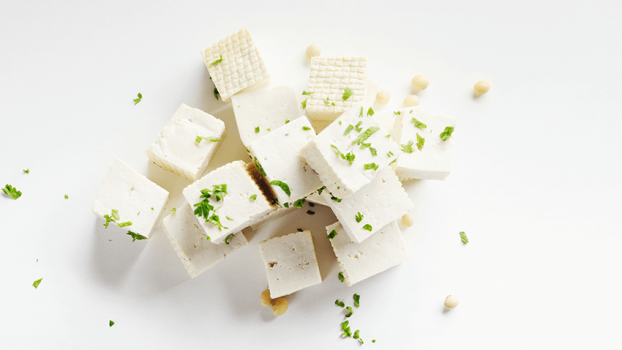Soy has come under criticism in the news because of its association with deforestation, ecosystem degradation, wildlife endangerment, loss of traditional livelihoods, and harm to indigenous people.
Therefore, typical soy-based products, such as tofu, tempeh, and soy milk, have a negative connotation. However, is this reputation even justified? Why is soy so highly demanded?

Soy is an excellent source of protein
Soy is naturally cholesterol-free and contains little saturated fat, making it an excellent meat alternative in a plant-based diet to provide protein.
Moreover, soy protein is a complete protein. This means that it contains all the essential amino acids that the body cannot produce itself and must obtain from food. Therefore, soy is, for many people, an essential part of their diet.
Soy may be beneficial to the body, but that is unfortunately not the case for the environment.
The crop itself offers several benefits
Soy is not bad for the environment per se. Its cultivation offers a lot of benefits.
Soy enriches the soil with nitrogen that the next crop can utilize. It requires a minimum of fertilizers and pesticides and helps farmers to control a common pest called blackgrass.
The most significant environmental problems occur, not because of the crop itself. Soybeans are of great economic value, but they impose enormous environmental costs when biodiverse land is cleared for their cultivation.

Increasing soy production and deforestation are linked together
Soy plantations are responsible for enormous deforestation, especially in the world’s rainforest ecosystems. In the previous 50 years, soybean production has increased 15-fold, representing one of the largest expansions of any crop in the world.
The Amazon Rainforest, the Brazilian Cerrado region, the Atlantic Forest, and the Gran Chaco in South America are the main regions threatened by soy deforestation. These areas are well-known for their biodiversity. Unfortunately, deforestation is quickly endangering the animals that call these forests home.
In addition, there are greenhouse gas emissions associated with the destruction of these forests. However, demand for soy products is not the reason why production has increased so much.

77% of soy is fed to livestock and poultry
The real reason for the excessive cultivation of soybeans is not the convinced vegans and vegetarians but the meat, dairy, and egg industries.
More than three-quarters (77%) of the soy grown worldwide is fed to livestock and poultry for meat, egg, and dairy production. The remainder is used for biofuels, vegetable and industry oils. Only 7% is turned into human foods such as tofu, tempeh, and soy milk.
Therefore, soy-fed livestock and poultry foods have a much more significant environmental impact than soy-based human foods.

Soy helps livestock and poultry reach market weight in record time
Why is soy the crop of choice for livestock and poultry? Soybeans are fed to animals due to their low price and long shelf life.
In addition, they are a great source of protein, helping animals reach market weight in record time.
Protecting the environment has never been more delicious
By choosing a plant-based diet, you can dramatically reduce your carbon footprint, conserve biodiverse land, and help feed vital crop resources to people, not livestock.
With so many delicious plant-based options, it’s never been easier to eat with the environment in mind.

Looking for further info? These sites may help:
- Soy by Our World in Data
- Why Tofu Consumption Is Not Responsible for Soy-Related Deforestation by One Green Planet
- Why soy’s link with Amazon deforestation isn’t a vegan problem by The Vegan Review






